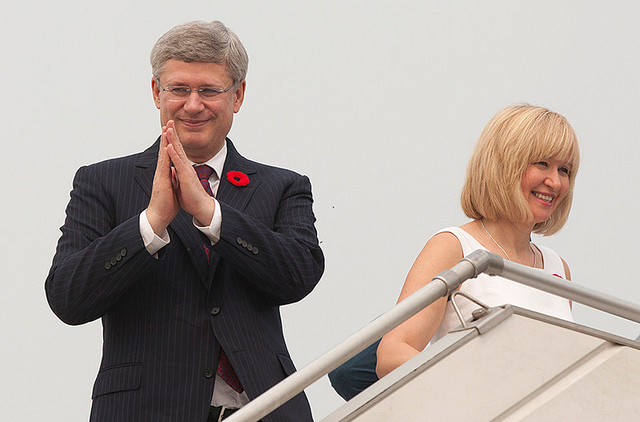Chip in to keep stories like these coming.
Those were the words of a British member of the UN Human Rights Committee who was taking part this week in the committee’s first review of Canada’s human rights record in 10 years.
Sir Nigel Rodley, a law professor and chair of the Human Rights Centre at the University of Essex, was referring to the deteriorating space for human rights advocacy, protest and dissent in Canada. He noted it was almost unbelievable that the UN committee felt compelled to raise these sorts of concerns with Canada. Sir Nigel highlighted research by the Voices coalition, which pointed to astonishing levels of fear and intimidation felt by Canadian activists and civil society groups, and referred to the disquiet expressed by the UN’s leading expert on the freedoms of assembly and association. He dismissed the Canadian government’s initial response to questions about the crackdown as “thin.”
It was a powerful moment that came near the end of six hours of back-and-forth, over two days, between committee members (drawn from countries around the world) and a sizable Canadian delegation from various federal departments and the province of Quebec. And it captured wider concerns about the range of troubling issues explored in the review.
Canada’s human rights record has been on display, and the range of shortcomings and violations that have been probed has been sobering.
Some are long standing, such as concerns about sex discrimination under the federal Indian Act. Others are more recent, such as many references to Bill C-51, the new Anti-Terrorism Act. Some of the issues, certainly violence against Indigenous women, have an impact on hundreds of thousands of people.
The point of the review is not that Canada is among the worst human-rights violators in the world. Of course not. It is a regular review that comes around for all countries that have signed the International Covenant on Civil and Political Rights. The point, rather, is that all signatories are obliged to protect all rights — and that there is an expectation that a signatory with all the resources and strong institutions that Canada has will set a high example for other countries to follow.
That is not the picture that emerged during the review, however. Instead, it was of entrenched problems in Canada, such as the failure to have an effective process for recognizing and protecting aboriginal land rights. And of new and troubling developments that take Canada in the wrong direction, such as the battle over federal cuts to health care for refugees.
All of this against a backdrop of increasing Canadian disregard for many aspects of the international human rights system. Canada was still dismissive of the important UN Declaration on the Rights of Indigenous Peoples — which the government asserted is not binding, not law, only aspirational.
Committee members were not impressed, for example, when Canada implied that it has no human rights responsibilities under the covenant when Canadian mining companies operate abroad.
Nor did Canada apologize for frequently refusing to comply with requests from UN human rights bodies to hold off on deportations while a full review of troubling cases was under way. And there was no commitment that governments across Canada would come together (for the first time since 1988) to talk about human rights and come up with a transparent, accountable system to ensure full implementation of our international obligations.
There was no shift in Canada’s apparent determination to not move forward with solutions to complex and urgent problems. No willingness to establish a public inquiry and action plan for murdered and missing aboriginal women, for example. No budging from insistence that voluntary approaches are the best way to ensure that mining companies do not abuse human rights.
By the end of the review it was difficult to think of a serious social issue, with clear implications for human rights, that had not come up. Homelessness and the right to life. Intelligence sharing and torture. Pay equity and women’s equality rights. Solitary confinement and high incarceration rates of Aboriginal people. Detention of immigrants with mental-health problems.
The committee report is due by month’s end, and then comes the true test for Canada. Will there be a good-faith commitment to take up the UN’s advice to tackle entrenched problems and head off new ones? Will the Canadian government show determination to protect human rights at home and be a leader abroad? Will there be action?
Or can we look forward to another such performance a decade from now? And another lament of “not the Canada I once knew.” Surely not.
Alex Neve is the Secretary-General of Amnesty International Canada. This article originally appeared in The Globe and Mail.
Image: Flickr/pmwebphotos
Chip in to keep stories like these coming.



